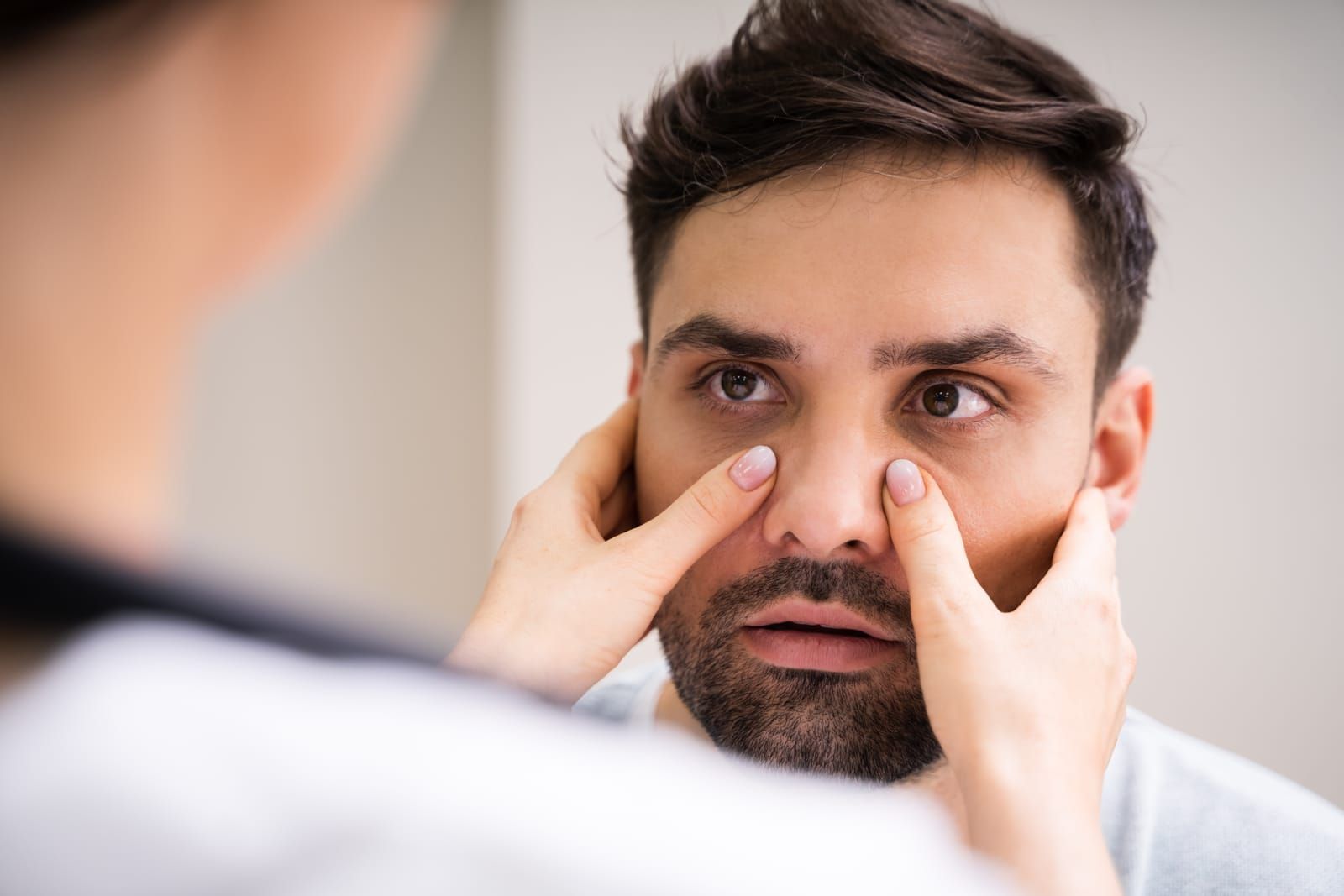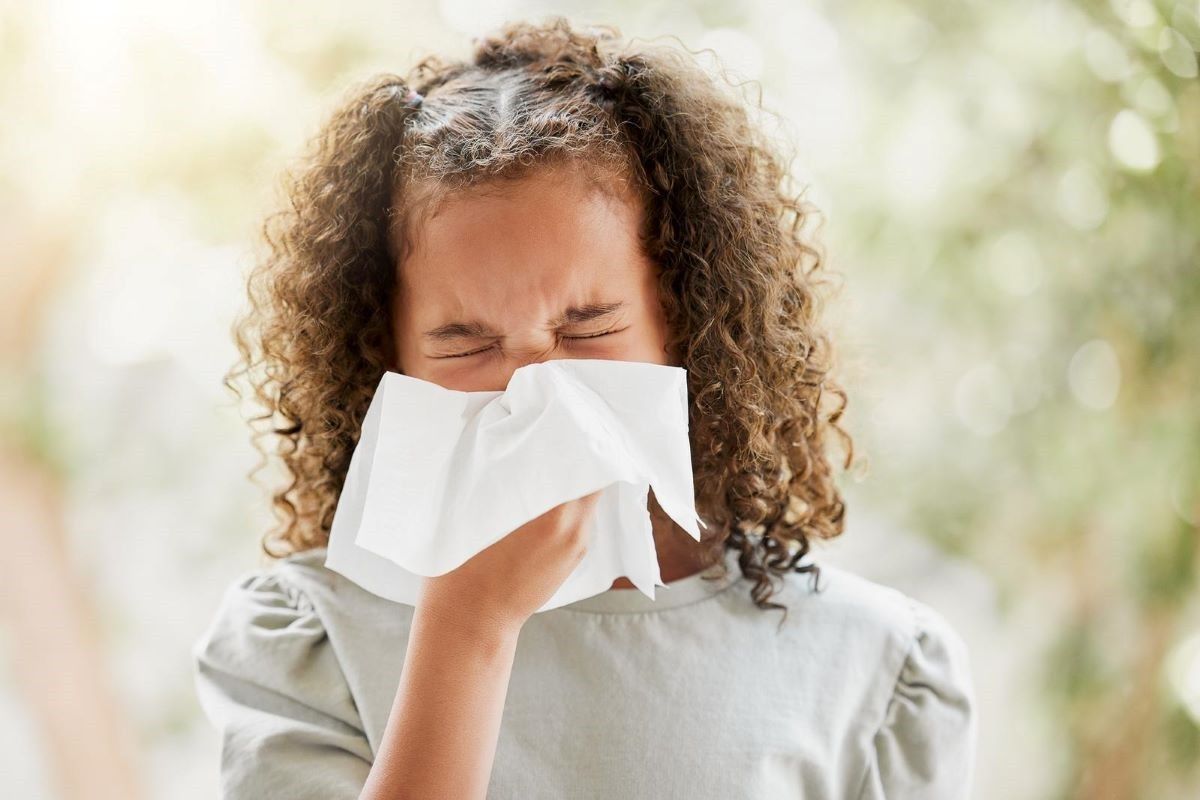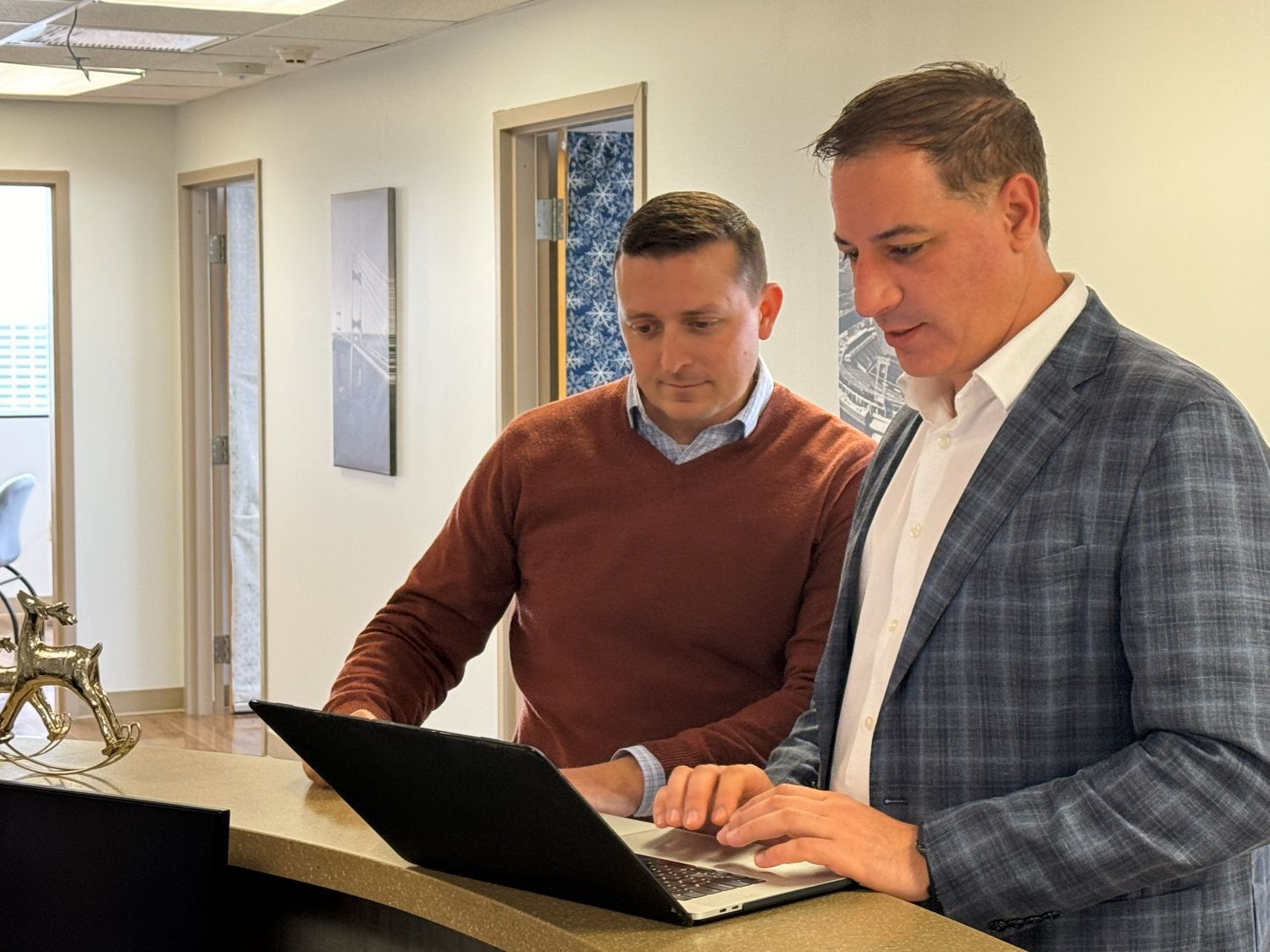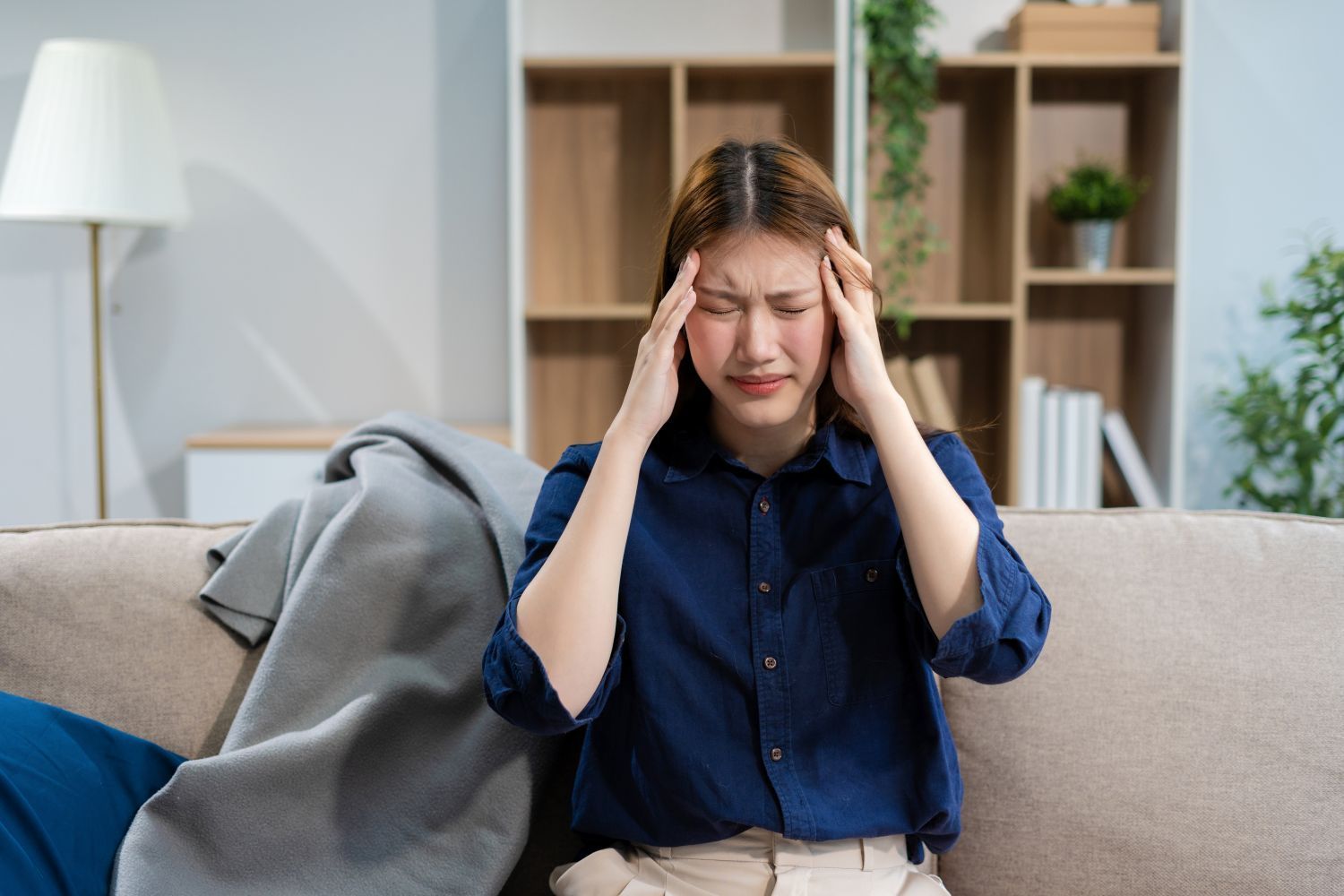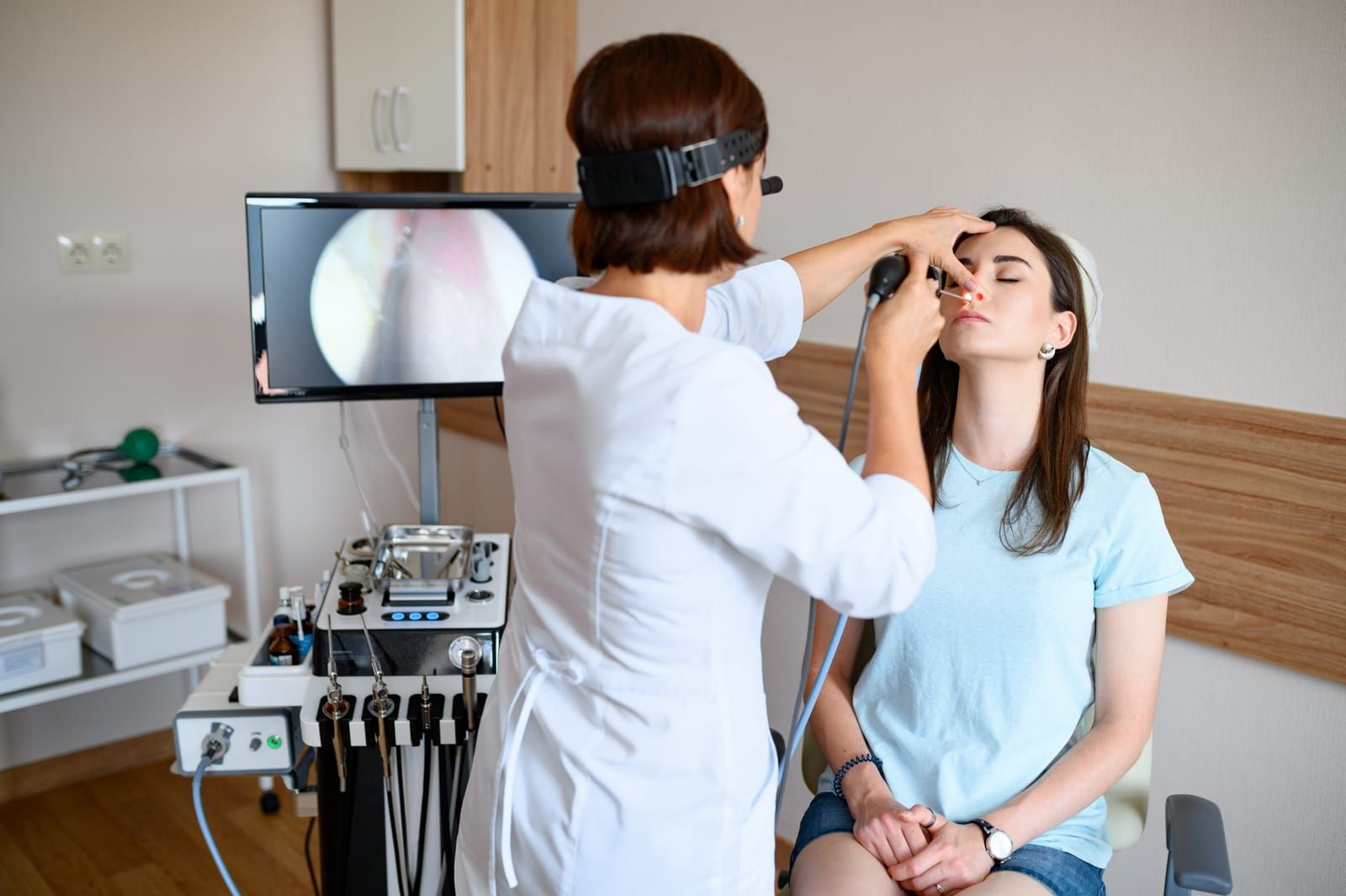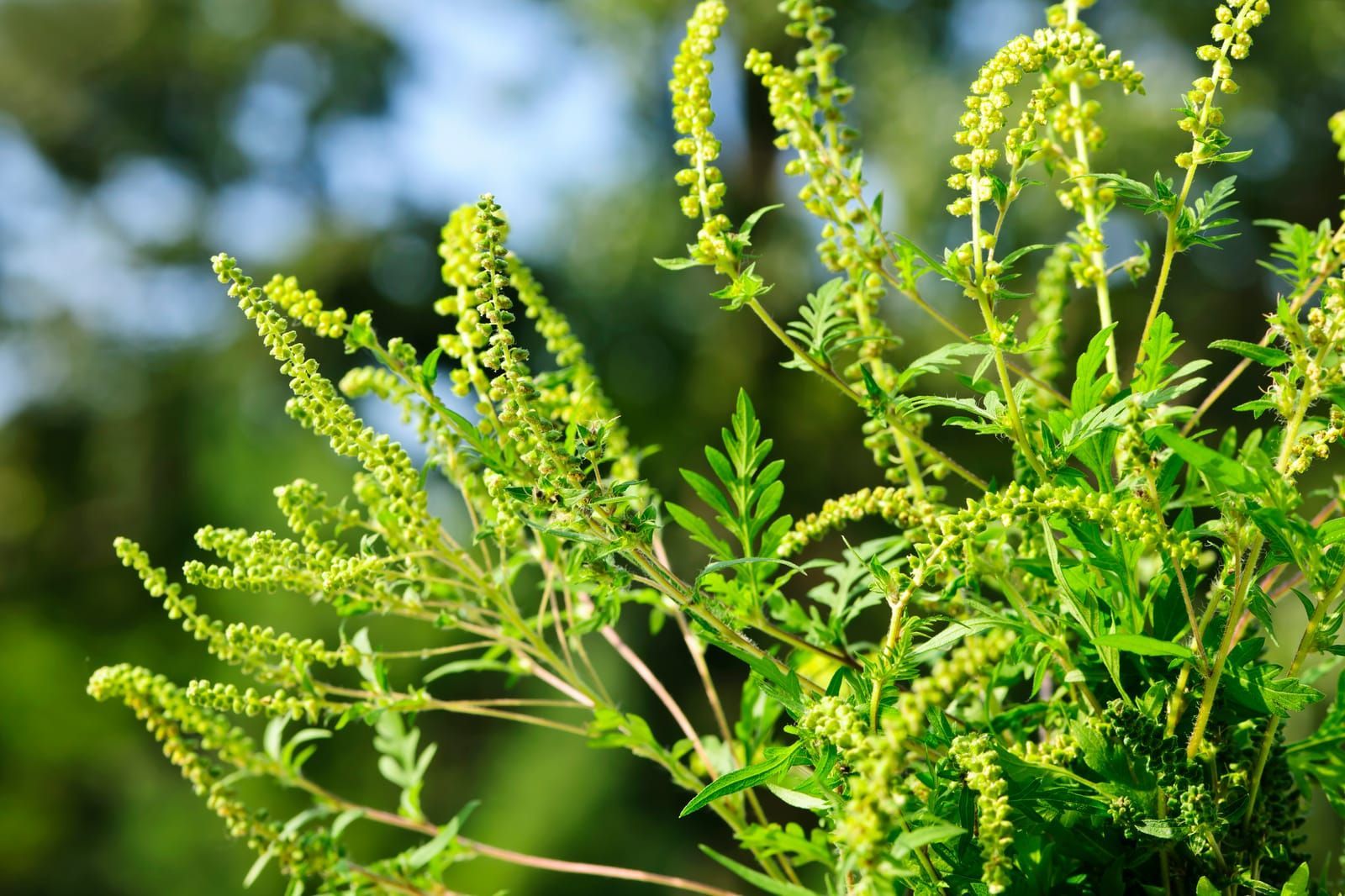Chronic Rhinitis Treatment That Works | Jacksonville FL
I recall the days when breathing was a constant battle. Sneezing, nasal congestion, and inflammation made everyday tasks a chore. Chronic rhinitis drained me, both physically and emotionally. Yet, I found solace and relief, and I'm eager to share my journey with you.
Chronic rhinitis treatment transformed my life, and it can do the same for you. In Jacksonville, we have access to innovative treatments for these persistent symptoms. Whether you face year-round or seasonal issues, there's a way to breathe better and live more fully.
Let's delve into how you can overcome sneezing and congestion. We'll explore the causes and effective treatments for chronic rhinitis. It's time to end the suffering and embrace life, one breath at a time.
Key Takeaways
- Chronic rhinitis can significantly impact daily life and sleep quality.
- Understanding triggers and risk factors is crucial for effective management.
- Jacksonville offers various treatment options for chronic rhinitis.
- Proper diagnosis is essential for tailored treatment plans.
- A combination of medical solutions and lifestyle changes can provide relief.
- Advanced treatments like immunotherapy are available for severe cases.
Understanding Chronic Rhinitis: Causes and Symptoms
Chronic rhinitis is a persistent inflammation of the nasal passages, significantly impacting daily life. Dealing with this condition, I've learned the importance of understanding its causes and symptoms. This knowledge is crucial for effective treatment.
Common Triggers and Risk Factors
Several factors can trigger chronic rhinitis, making it essential to avoid allergens. Common culprits include:
- Pollen from trees, grasses, and weeds
- Dust mites and pet dander
- Mold spores
- Strong odors and irritants
Types of Rhinitis
| Type | Cause | Symptoms |
|---|---|---|
| Allergic | Allergens | Sneezing, itching, runny nose |
| Non-allergic | Irritants, weather changes | Congestion, postnasal drip |
| Mixed | Combination of factors | Varied symptoms |
Impact on Daily Life
Chronic rhinitis can severely affect quality of life. Persistent symptoms often disrupt sleep, leading to daytime fatigue. Environmental control measures are essential for managing symptoms and improving overall well-being. Understanding these aspects helps us approach treatment more effectively, seeking relief.
Diagnosing Chronic Rhinitis: What to Expect at Your Visit To Jacksonville Sinus and Nasal
At Jacksonville Sinus and Nasal, we employ a detailed method to diagnose chronic rhinitis. Our aim is to identify the underlying cause of your symptoms. Then, we craft a customized treatment plan for chronic rhinitis.
Your visit starts with a detailed medical history review. We delve into your symptoms, triggers, and any treatments you've undergone. This includes nasal corticosteroids or antihistamines.
Next, a physical examination of your nose, throat, and sinuses follows. This examination may include:
- Nasal endoscopy to visualize the inside of your nasal passages
- Allergy skin tests to identify specific allergens
- Blood tests to check for underlying conditions
In some instances, we might suggest additional tests. These could be CT scans or nasal smears to exclude other conditions.
"Accurate diagnosis is crucial for effective chronic rhinitis treatment. We leave no stone unturned in our quest to help you breathe easier."
After analyzing our findings, we create a personalized treatment plan. This plan may include nasal corticosteroids, antihistamines, and lifestyle changes.
| Diagnostic Step | Purpose |
|---|---|
| Medical History | Understand symptom patterns and triggers |
| Physical Exam | Assess nasal structures and inflammation |
| Allergy Testing | Identify specific allergens |
| Additional Tests | Rule out other conditions if necessary |
Remember, treating chronic rhinitis is a journey. We're committed to supporting you every step of the way. We'll adjust your plan as needed to achieve the best results.
Medical Solutions: Chronic Rhinitis Treatment Options
Chronic rhinitis treatment encompasses a variety of medical solutions aimed at managing symptoms and enhancing quality of life. We will delve into the available options to help you breathe more comfortably and find relief.
Prescription Medications and Their Effects
Doctors tailor medications to meet individual needs. Antihistamines counteract allergy triggers, while decongestants reduce nasal swelling. For severe cases, combination drugs are recommended to address multiple symptoms simultaneously.
Over-the-Counter Relief Methods
Many find solace in over-the-counter remedies. Saline nasal sprays hydrate the nasal passages, easing congestion. Decongestants in pill form offer temporary relief but should be used sparingly to prevent rebound congestion.
Understanding Nasal Corticosteroids
Nasal corticosteroids are a crucial part of chronic rhinitis treatment. These sprays decrease inflammation in the nasal passages, alleviating symptoms like congestion and runny nose. They are safe for long-term use and often provide significant relief when used consistently.
| Treatment Type | Benefits | Considerations |
|---|---|---|
| Prescription Medications | Targeted symptom relief | May have side effects |
| OTC Decongestants | Quick relief | Short-term use only |
| Nasal Corticosteroids | Long-term management | Takes time to see full effects |
By grasping these treatment options, you can collaborate with your doctor to devise an effective plan for managing chronic rhinitis and enhancing your breathing.
Environmental Control and Allergen Avoidance
Environmental control is vital in treating chronic rhinitis. By limiting exposure to allergens and irritants, symptoms can be greatly reduced. This improves overall quality of life. Let's delve into effective strategies for avoiding allergens and creating a healthier living environment.
The bedroom is a critical area for environmental control. I advise using allergen-proof covers for mattresses and pillows to minimize dust mite exposure. Additionally, washing bedding in hot water (130°F or higher) weekly can eliminate these tiny allergens.
Optimal indoor air quality is crucial. I recommend using high-efficiency particulate air (HEPA) filters in air conditioning units and vacuum cleaners. These filters capture allergens, pollen, and other irritants, enhancing air quality.
"A clean home is a breath of fresh air for those with chronic rhinitis."
Below is a table outlining effective allergen avoidance techniques:
| Area | Technique | Benefit |
|---|---|---|
| Bedroom | Use allergen-proof covers | Reduces dust mite exposure |
| Living Room | Remove carpets, use hardwood floors | Minimizes allergen accumulation |
| Kitchen | Fix leaks, reduce humidity | Prevents mold growth |
| Outdoors | Monitor pollen counts, stay indoors when high | Limits exposure to seasonal allergens |
Implementing these environmental control measures can create a safer, allergen-free space. This, combined with proper medical treatment, forms a comprehensive strategy for managing chronic rhinitis effectively.
Advanced Treatment Options: Immunotherapy and Surgery
When standard treatments for chronic rhinitis don't work, advanced options like immunotherapy and nasal surgery offer hope. These methods target the root causes of persistent symptoms. They provide long-lasting relief for many patients.
Allergy Shots and Sublingual Immunotherapy
Immunotherapy is a game-changer for chronic rhinitis treatment. It gradually exposes the body to allergens, building tolerance over time. Allergy shots involve regular injections, while sublingual immunotherapy uses under-the-tongue drops or tablets. Both methods can significantly reduce symptoms and medication needs.
| Immunotherapy Type | Administration | Duration | Effectiveness |
|---|---|---|---|
| Allergy Shots | Injections | 3-5 years | 85-90% symptom reduction |
| Sublingual Immunotherapy | Drops/Tablets | 3-5 years | 75-80% symptom reduction |
Surgical Interventions for Severe Cases
In some instances, nasal surgery becomes necessary. Procedures like septoplasty correct structural issues, while turbinate reduction addresses enlarged nasal tissues. These surgeries can dramatically improve airflow and reduce chronic rhinitis symptoms.
Recovery and Post-Treatment Care
Recovery from immunotherapy or nasal surgery requires patience. After treatment, I advise patients to use saline rinses, avoid irritants, and attend follow-up appointments. With proper care, most people experience significant improvement in their quality of life.
"Advanced treatments like immunotherapy and surgery have transformed my approach to managing chronic rhinitis. I've seen patients regain their ability to breathe freely and enjoy life without constant nasal symptoms."
Managing Chronic Rhinitis in Different Seasons
Chronic rhinitis treatment changes with the seasons. I've learned to adjust my methods to match each season. This way, I can keep my nose healthy all year.
Winter Care Strategies
Cold air often triggers rhinitis symptoms. To combat this, I use a humidifier to keep the air moist. Saline irrigation helps clear congestion and soothe my nasal passages. Wearing a scarf outdoors warms the air, reducing irritation.
Summer and Spring Management
Pollen levels are high in spring and summer. I keep windows closed on high pollen days and shower after being outside. This removes allergens. Air purifiers help trap indoor allergens. Saline nasal sprays are effective for rinsing away irritants and keeping my nose moist.
Fall Allergy Prevention
Ragweed pollen and mold spores are common fall allergens. I begin my treatment in late summer. Regular nasal rinses and staying indoors on windy days help reduce exposure to allergens.
| Season | Key Triggers | Treatment Focus |
|---|---|---|
| Winter | Dry air, Indoor allergens | Humidification, Saline irrigation |
| Spring | Tree pollen, Grass pollen | Air purification, Nasal rinses |
| Summer | Grass pollen, Mold spores | Indoor air quality, Saline sprays |
| Fall | Ragweed, Mold spores | Early prevention, Nasal irrigation |
By adjusting your chronic rhinitis treatment for each season, you can breathe more easily all year. Remember, consistent nasal care with saline irrigation and the right medications are key to managing symptoms effectively.
Long-term Prevention and Maintenance Strategies: Book an Appointment with Jacksonville Sinus and Allergy
Managing chronic rhinitis demands a long-term strategy. At Jacksonville Sinus and Allergy, we craft personalized plans to manage your symptoms. Our focus is on prevention and maintenance, ensuring you can breathe freely every day.
Regular nasal rinses are a cornerstone of our recommended care. These treatments effectively remove irritants, keeping your nasal passages clear. We'll guide you in mastering the technique for optimal home care.
Controlling your environment is also vital. We'll help you identify and mitigate triggers at home and work. This might involve using air purifiers, changing air filters, or adjusting your cleaning habits.
"Consistent care is the key to managing chronic rhinitis. Our goal is to empower you with the tools and knowledge to take control of your symptoms."
| Appointment Component | Purpose |
|---|---|
| Symptom Review | Assess effectiveness of current treatment plan |
| Physical Examination | Check for any changes in nasal structures |
| Treatment Adjustments | Modify medications or therapies as needed |
| Lifestyle Recommendations | Provide updated advice on environmental control |
Regular check-ups are essential for ongoing success. These visits allow us to monitor your progress, adjust treatments, and address new concerns. Here's what you can expect during these follow-up appointments:
Conclusion
Chronic rhinitis treatment can be life-changing for those struggling to breathe freely. This article has covered the causes, symptoms, and various treatment options. From medical solutions to environmental control, managing this condition is possible.
It's crucial to seek professional help if you're dealing with chronic rhinitis. Proper diagnosis and treatment can significantly improve your daily life. With the right approach, you can reduce symptoms, breathe easier, and enjoy better sleep.
Chronic rhinitis doesn't have to control your life. By working with experts and following a tailored treatment plan, you can find relief. Don't let chronic rhinitis hold you back - take the first step towards better health today.
Frequently Asked Questions
What are the most common symptoms of chronic rhinitis?
Symptoms of chronic rhinitis include persistent nasal congestion and a runny nose. Sneezing and postnasal drip are also common. Some people may experience itching in the nose, eyes, or throat. Additionally, a reduced sense of smell can occur.
How is chronic rhinitis diagnosed?
Diagnosing chronic rhinitis involves a detailed medical history and physical examination. Allergy testing or imaging studies may also be used. In some cases, nasal endoscopy is performed to examine the nasal passages closely.
What are the main treatment options for chronic rhinitis?
Treatment options include nasal corticosteroids, antihistamines, and decongestants. Saline irrigation and immunotherapy are also considered. In severe cases, nasal surgery might be recommended. The best treatment plan varies based on the type and severity of rhinitis.
Can chronic rhinitis be cured?
Chronic rhinitis cannot always be completely cured. However, it can be effectively managed. My goal is to significantly reduce symptoms and improve your quality of life through medical interventions and lifestyle changes.
Are there any natural remedies for chronic rhinitis?
Yes, natural remedies like saline nasal rinses and steam inhalation can help. Dietary changes may also be beneficial. Always consult a healthcare professional before trying these remedies to ensure they're right for you.
How long does it take to see results from chronic rhinitis treatment?
Results vary based on treatment and individual factors. Some may see relief in a few days, while others may take weeks. Immunotherapy can take several months to show full benefits.
Can environmental control measures really help with chronic rhinitis?
Absolutely. Environmental control measures can be very effective. Using air purifiers and keeping windows closed during high pollen days can help. Regular cleaning to reduce dust and mold is also beneficial.
Is nasal surgery always necessary for chronic rhinitis?
No, nasal surgery is not always necessary. It's considered only when other treatments fail or if there are structural issues. I always explore conservative treatments first before recommending surgery.

